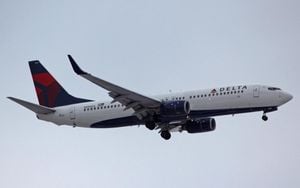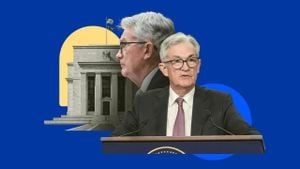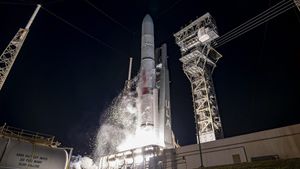Colombia has seen significant activity recently concerning international cocaine trafficking, underscored by the arrest of Christopher Neil, a British national described by authorities as "invisible." This term refers to low-key traffickers who blend seamlessly with ordinary society to avoid detection, contrasting sharply with the flamboyant drug lords of the past.
Neil was taken down by local law enforcement and Interpol during what authorities say was his last attempt to facilitate a multi-million-dollar drug transaction from Colombia to the United Kingdom. Living there since late 2018, Neil is accused of working for the Gulf Clan cartel, notorious for its extensive drug trafficking network and violent enforcement tactics. Police apprehended him as he proceeded to conduct the deal, marking another blow against sophisticated drug trafficking operations.
"Authorities caught him when he was on his way to make a multi-million-dollar transaction," representatives from the Colombian National Police confirmed. This operation's intelligence reportedly emerged from the increased activity surrounding the Gulf Clan's operations, which have drawn significant international attention.
Neil's arrest occurred shortly after Colombian authorities confiscated 225 tons of cocaine through Operation Orion—a massive international cooperative effort involving 62 countries. This operation revealed extensive narcotics trafficking channels, including semi-submersible vessels engaging in drug shipments to Australia. Captain Manuel Rodríguez of the Colombian navy's anti-narcotics unit lauded the operation's impact, stating, "This will prevent thousands of deaths and deprive cartels of potential revenue." The cumulative toll of the drugs seized reflects over 8% of the estimated annual cocaine production for 2024, providing evidence of the magnitude of the efforts being made against the prevalent drug trade.
Meanwhile, at OR Tambo International Airport, the South African Police Service also made headlines with the arrest of two Brazilian nationals. Detained upon arrival from São Paulo, Brazil, one suspect was found carrying over 4 kg of cocaine hidden within his luggage. The other individual had allegedly swallowed cocaine-filled "bullets," confirming his intent to transport illegal substances through South Africa's major airport.
SAPS Lieutenant Colonel Amanda Van Wyke provided insight on the arrest: "One of these traffickers was found in possession of over 4kg cocaine... Fifteen 'bullets' containing cocaine have so far been released." Both detainees are expected to face charges this week at the Kempton Park Magistrates' Court, following their capture, which follows another recent bust of Crystal meth worth R6 million.
The continuing pattern of apprehending traffickers across different jurisdictions highlights the sustained efforts by law enforcement agencies worldwide to combat the cocaine trade, which remains rife with violence and corruption. The Gulf Clan, having emerged as one of the most powerful cartels amid the return of organized crime dynamics, seems undeterred, yet the pressure from both Colombian authorities and international agencies like Interpol manifests increasingly through successful operations.
With high-profile arrests of traffickers like Neil and the Brazilian nationals, authorities hope to disrupt the flow of cocaine significantly and diminish cartel capabilities, which traditionally have thrived on chaos and secrecy. Interventions like Operation Orion and similar initiatives signal to traffickers worldwide: law enforcement is adapting and responding to the challenges posed by modern narcotics networks.
The stakes are high within this drug enforcement narrative. Each arrest not only holds implications for the individuals involved but also sends tremors through the vast intercontinental networks of drug trafficking. The ramifications might save lives and curtail the violent repercussions associated with the global cocaine trade.
Combined, these events reflect the stark reality facing governments and law enforcement—swift, united actions are necessary to dismantle the layers of drug operations threatening public safety. But as effective as these arrests may be, the overarching question remains: how will these successes influence future trafficking dynamics?
Only time will tell if the efforts against coke trafficking will yield the substantial shifts needed to affect the broader environment and safety pertaining to drug-related affairs across nations battling against lucrative but deadly substances.



